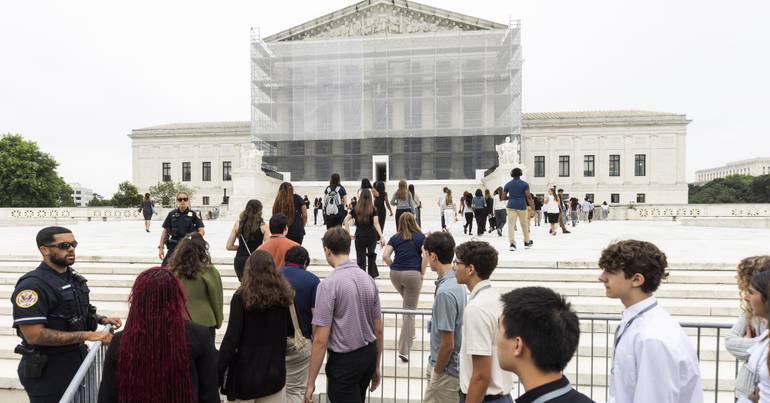

In a significant decision, the United States Supreme Court has reaffirmed the provision of free preventive healthcare services, ensuring that millions of Americans will continue to have access to these essential medical benefits. This decision supports the existing framework under which preventive healthcare services are made available without direct cost to patients, a measure that was introduced under the Affordable Care Act (ACA) during the previous administration.
The ruling is a pivotal moment in the ongoing discourse over healthcare legislation in the United States. It underscores the importance of preventive care in maintaining public health and reducing long-term healthcare costs. This form of care includes services such as vaccinations, screenings for various conditions, and regular check-ups, all vital in early detection and prevention of diseases.
Despite the contentious political landscape surrounding the ACA since its inception, the confirmation of these services by the Supreme Court signals a commitment to upholding healthcare provisions that aim to reduce barriers to essential health services. The ACA, often colloquially known as “Obamacare,” has been a focal point of political debate over the years, particularly concerning its mandate for providing preventive care without cost-sharing obligations.
The decision came after arguments presented to the court concerning the specifics of the provision and its broader implications on healthcare laws and regulations. Previous attempts by the current administration to redefine or limit certain aspects of the ACA faced significant legal challenges, reflecting the ongoing tension between different governmental priorities and approaches to public health policy.
The Supreme Court’s ruling, while affirming the lower court’s decision, provides a layer of stability and clarity for healthcare providers and insurers. This stability is crucial for long-term planning and assures beneficiaries of continued access to necessary health services. Advocates for public health have praised the ruling as a step in the right direction, emphasizing that preventive care is an investment in the nation’s health, potentially leading to improved outcomes and reduced hospitalizations over time.
The protection of preventive healthcare services is considered a cornerstone of comprehensive health coverage, ensuring that individuals can access essential services without the fear of additional expenses. This approach not only addresses immediate health needs but also supports a proactive health management philosophy, encouraging individuals to seek early intervention and treatment.
As the nation continues to navigate complex healthcare issues, the Supreme Court’s ruling serves as a reminder of the importance of accessible healthcare for all citizens. It highlights the collective responsibility to maintain and promote health equity, enabling individuals to lead healthier, more fulfilling lives.
In the proceedings leading up to the decision, legal representatives voiced concerns about potential impacts on both public health and the insurance landscape. The decision represents a crucial point in the dialogue between ensuring economic sustainability and guaranteeing public access to vital health services, bringing a mindful balance to these considerations.
Looking forward, stakeholders in the healthcare industry, from policymakers to practitioners, are encouraged to continue collaborative efforts to enhance the accessibility and quality of care. The affirmation of preventive healthcare service access is expected to positively influence public health policy, shaping future initiatives and reforms aimed at reducing health disparities and improving health outcomes across diverse populations.
In summary, the U.S. Supreme Court’s confirmation of the accessibility of preventive healthcare services marks a noteworthy development in safeguarding public health policy. It reassures the public and healthcare providers alike of the nation’s commitment to equitable health access, reinforcing a thoughtful, inclusive approach to healthcare that benefits all Americans.
Source: {link}
